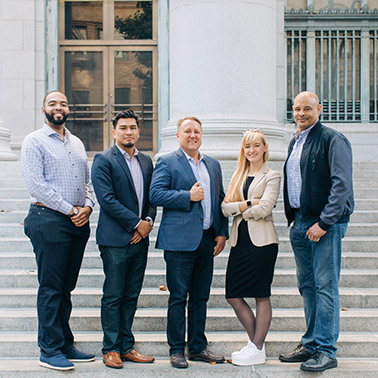 By Louis Lehot, business lawyer and partner at Foley & Lardner LLP in Silicon Valley, and formerly the founder of L2 Counsel, P.C.
By Louis Lehot, business lawyer and partner at Foley & Lardner LLP in Silicon Valley, and formerly the founder of L2 Counsel, P.C.
Imagine a world where you own stock in a company, the price skyrockets, you sell it, and pay zero tax on the profit. Welcome to the wonderful world of Qualified Small Business Stock. The only things certain in life are death and taxes, according to Benjamin Franklin (if only Franklin’s many inventions could have benefited him through ownership of Qualified Small Business Stock, or QSBS). If you are considering the creation of a new business or a taxable event from shares you acquired in a private company, you need to understand how Section 1202 of the Internal Revenue Code (IRC) might help your investment qualify for QSBS status and exemption from federal tax.
QSBS, also known as Section 1202 stock, can be a unique planning tool for the right company, especially a tech startup. Thanks to tax policies favoring the creation of new businesses, investors and founders can obtain substantial tax breaks. Taxpayers holding QSBS can entirely or partially avoid tax on their gain from the sale of QSBS as long as some requirements are met. QSBS is stock in a U.S. domiciled sub-chapter C corporation that had gross assets of $50 million or less at all times before and directly after the issuance of the QSBS, and has been engaged in a qualified trade or business. Industries that are excluded include law, healthcare, financial services, architecture, banking, insurance, farming, mining, hospitality, and restaurants.
If 1202 requirements are met, a person holding QSBS may exclude somewhere between 50% and 100% of the gain on the sale of their QSBS from federal and some state income tax, but the exclusion amount depends on when the holder acquired the QSBS. If acquired after September 27, 2010, it may qualify for a 100% exclusion; if acquired sometime after February 17, 2009, yet before September 28, 2010, it may be eligible for a 75% exclusion and; if acquired before February 18, 2009, may qualify for a 50% exclusion. Still, the amount of the exclusion is limited to the greater of $10 million or 10x the holder’s adjusted tax basis in the QSBS that the holder has sold.
Moreover, there are two primary requirements for someone to take advantage of these benefits. First, the holder must have acquired the QSBS from the company in exchange for money, property, or as compensation for services. Second, the holder must have held the QSBS for more than five years at the time of sale. Also, the company must comply with rules to allow its shareholders to qualify for favorable QSBS treatment. The company must remain a U.S. C corporation and engaged in a qualified business or trade throughout substantially all of the five-year holding period.
If a holder sells QSBS before five years, the holder may avoid tax if they invest the proceeds into other QSBS. To take advantage of these rules, the holder must have held the QSBS that was sold for more than six months, has 60 days to complete the rollover, and the company must be a U.S. C corporation with gross assets of $50 million or less that is engaged in a qualified business or trade for all of the first six months following the rollover. If requirements are met, the holder should qualify for the QSBS benefits once its combined holding period in the new and old QSBS exceeds five years. If a holder exchanges QSBS for stock that isn’t QSBS in certain tax-free transactions, the other stock will be handled as QSBS to the extent of the profits that would have been recognized at the exchange time if the transaction had not qualified as tax-free.
If you are currently or will be an eligible small business, consider using QSBS to raise capital or reward key employees. Before you move forward, be sure to talk to a tax advisor to ensure that all conditions and requirements for being a qualified small business are met.

Louis Lehot is a partner and business lawyer with Foley & Lardner LLP, based in the firm’s Silicon Valley, San Francisco and Los Angeles offices, where he is a member of the Private Equity & Venture Capital, M&A and Transactions Practices and the Technology, Health Care, and Energy Industry Teams. Louis focuses his practice on advising entrepreneurs and their management teams, investors and financial advisors at all stages of growth, from garage to global. Louis especially enjoys being able to help his clients achieve hyper-growth, go public and to successfully obtain optimal liquidity events.


